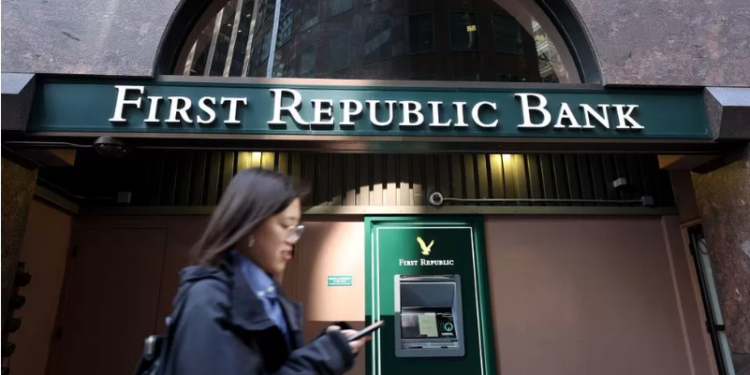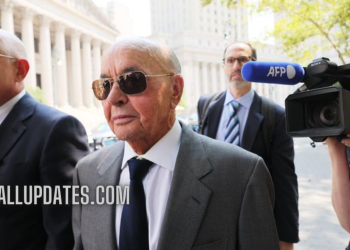As investors ponder the company’s future, First Republic’s stock has declined by roughly 50 percent.
The declines occurred one day after a mid-sized US bank reported that consumers had withdrawn more than $100 billion (£80 billion) from their accounts during last month’s banking panic.
After a succession of bank failures sparked fears of a sector-wide crisis, First Republic was viewed as one of the banks most vulnerable to failure.
It was stabilised by a rescue agreement worth billions of dollars.
The company’s update revealed how rapidly the concerns spread.
The bank reported losing roughly 40 percent of its deposits as customers raced to withdraw funds in the days following the collapses.
It ended March with approximately $104 billion in deposits, including $30 billion it received from other banks as part of a confidence-boosting rescue plan.
According to First Republic, the situation has since stabilised.
It added that it was pursuing “strategic options” to bolster its position, including the reduction of 20 to 25 percent of its workforce in the future months.
Earlier this month, Silicon Valley Bank, the nation’s sixteenth-largest lender, failed in the largest failure of a US bank since 2008. This event signalled the emergence of banking sector problems in the United States.
This was followed by the failure of New York’s Signature Bank two days later.
In an effort to prevent further attacks on bank deposits, the government guaranteed deposits in excess of typical limits.
However, this did not immediately prevent the dissemination of concerns. In Europe, Swiss officials facilitated a rescue for the troubled banking giant Credit Suisse, which saw 61.2 billion Swiss francs ($69 billion; £55.2 billion) exit the bank in the first quarter of the year.
In an effort to combat inflation, central banks around the globe, including the Federal Reserve and the Bank of England, have sharply increased interest rates.
The actions have diminished the value of banks’ sizable bond portfolios acquired when interest rates were lower.
Customers fearful of Silicon Valley Bank’s financial repercussions abruptly withdrew funds from their accounts, causing the bank to fail. The incident also sparked concerns about the situation at other companies.














































